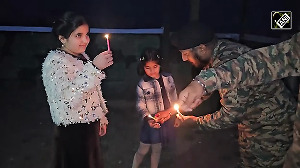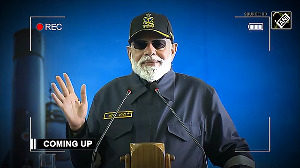Voting for the new President of India would be held on 19th of July and announcement of in the winner would be made on 21 July who would eventually replace President A P J Abdul Kalam on July 25.
The 3-member Election Commission chaired by Chief Election Commissioner N Gopalaswamy met on Thursday to consider the application of leader of opposition L K Advani on Wednesday in which Advani had argued against the forcible abstention from the Presidential poll by the parties who joined hands to form United National Progressive Alliance. UNPA had announced that they would abstain from voting.
Delivering its verdict after a prolonged discussion the Election commission observed that the Honourable Supreme Court in the case of Kuldip Nayar and Pasupati Nath Sukul, will apply with equal force at the Presidential election as well.
"Accordingly, in the Commission's opinion, voting or not voting as per his/her own free will at the Presidential election will not come within the ambit of disqualification under the Tenth Schedule to the Constitution of India and the electors are at liberty to vote or not to vote at the Presidential election as per their own free will and choice," the EC said.
Reacting to the decision, L K Advani heaped praises on the Commission and claimed that their stand on forcible abstentions has been vindicated. He expressed his happiness over the decision of the election commission.
Sushma Swaraj, while addressing a press conference in the day, had admitted that there had never been hundred per cent voting in the Presidential elections and members have abstained from voting.
But these abstentions are more because of personal reasons than whip from the political parties.




